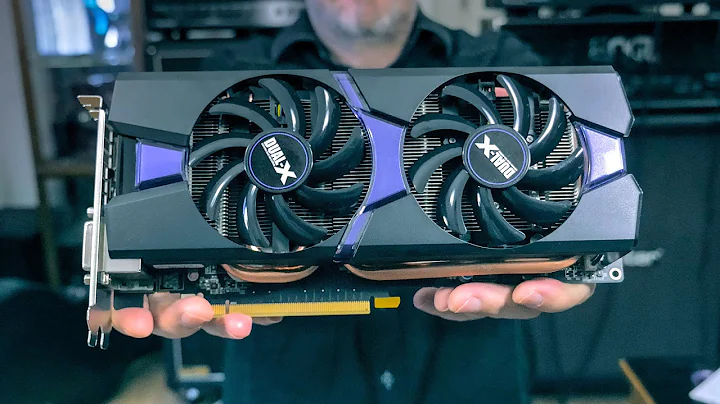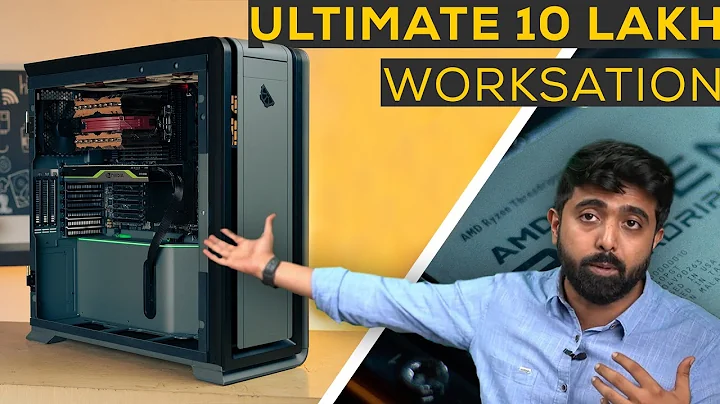AMD's Controversial Warranty Policy for Ryzen 7000 CPUs
Table of Contents
- Introduction
- Shady Tactics in the CPU Market
- The Issue with AMD's Warranty Policy
- The Restricted List of Approved CPU Coolers
- The Consequences for Overclocking
- Comparison with Other Manufacturers
- The Standout: EVGA's Warranty Policy
- A Call for Setting Boundaries on Overclocking
- The Concerns with Ryzen 7000 CPUs
- Conclusion
👉 Introduction
In the world of CPU enthusiasts and overclockers, achieving maximum performance from their processors is a top priority. However, recent controversies in the CPU market have shed light on some shady tactics employed by both manufacturers and other market players. One such issue revolves around warranty policies, specifically regarding the use of aftermarket CPU coolers. This article will delve into the undisclosed restrictions and consequences that users face when using third-party cooling solutions on their AMD Ryzen 7000 CPUs. Let's explore the details.
👉 Shady Tactics in the CPU Market
The Ryzen 7000 3D CPUs have been making waves in the enthusiast community, with mixed reactions from both consumers and industry experts. While the spotlight has been on Asus and the backlash it received from gamers and creators alike, it's crucial to acknowledge that other manufacturers are also involved in questionable practices. Among them, AMD, a prominent player in the CPU market, seems to have some restrictions Hidden within its warranty policy that users may not be aware of. In the next sections, we will uncover these restrictions and their implications.
👉 The Issue with AMD's Warranty Policy
AMD users will be surprised to learn that they can't simply use any CPU cooler of their choice without consequences. According to AMD's warranty update policy, using a CPU cooler that is not included as a stock cooler or one that doesn't adhere to AMD's approved specifications for third-party cooling solutions will result in an immediate nullification of the CPU warranty. Interestingly, the policy doesn't explicitly state that overclocking the CPU will void the warranty. It solely emphasizes the usage of non-recommended coolers as the determining factor for warranty termination.
👉 The Restricted List of Approved CPU Coolers
A quick glance at AMD's recommended CPU coolers list for Ryzen 7000 CPUs reveals a limited selection of options. Particularly concerning are the mainstream 105-watt CPUs and those rated higher, such as the Ryzen 7800x 3D with a rating of 120 watts. For these CPUs, any cooler outside of those recommended by AMD will void the warranty, unless users mislead the company by claiming the use of an approved cooler. This restriction seems absurd, considering the list already includes some of the best 280mm and 360mm AIO coolers, such as the Arctic Liquid Freezer 280 and 360, which consistently rank at the top of performance charts.
👉 The Consequences for Overclocking
In addition to the cooling restrictions, AMD's policy extends to overclocking as well. Any form of overclocking, even when enabled by AMD, is stated to result in the termination of CPU and memory warranty. This becomes ironic when considering that AMD itself used overclocked memory in their benchmarks against Intel CPUs. By operating outside of AMD's published specifications, users unknowingly subject their CPUs to potential warranty voidance. However, one must question AMD's use of technologies and speedier memory kits that also technically void warranties, creating a double standard in their claims against Intel.
👉 Comparison with Other Manufacturers
To put AMD's policies into perspective, it's worth examining the warranty terms of other CPU manufacturers such as Intel, Nvidia, MSI, Asus, and ASRock. Intel clearly stipulates that changing the clock frequency or voltage beyond specifications will nullify the warranty. However, details regarding overclocking are not explicitly Mentioned. Nvidia's warranty excludes coverage for GPU damage caused by abuse, misuse, negligence, or acts of God, but remains silent on overclocking repercussions. This seems to be a common approach among many manufacturers, perhaps to avoid directly addressing the warranty implications of overclocking.
👉 The Standout: EVGA's Warranty Policy
A notable exception among the manufacturers is EVGA, whose warranty policy explicitly states that overclocking will not void the warranty unless the product is damaged to the extent of component solder removal. EVGA's clear stance on overclocking sets a Precedent for transparency and customer trust. Other manufacturers would benefit from adopting similar policies that clearly define the boundaries of overclocking and genuinely support enthusiasts' pursuits without jeopardizing warranty coverage.
👉 A Call for Setting Boundaries on Overclocking
While it is necessary to acknowledge extreme overclocking as a user's responsibility, it is equally important for companies to define acceptable boundaries for overclocking in their warranty policies. Enthusiasts should not face complete warranty termination for pursuing legitimate performance gains. Instead, manufacturers should explore avenues to protect both consumers and themselves while fostering a spirit of innovation and customer satisfaction.
👉 The Concerns with Ryzen 7000 CPUs
When examining the burning controversy surrounding Ryzen 7000 CPUs and their high power consumption, it becomes evident that the restrictions on aftermarket coolers have added another layer of concern. In previous discussions, we touched upon the idle-state power consumption and its connection to the burning of some CPUs. The issue of uncertain warranty coverage further compounds the problems that Ryzen 7000 CPUs already faced. It is essential for both AMD and other manufacturers to address these concerns promptly and transparently.
👉 Conclusion
In conclusion, the CPU market is not exempt from questionable practices and policies that affect users in unexpected ways. While manufacturers like AMD impose restrictions on aftermarket CPU coolers and overclocking, others remain ambiguous, leaving consumers in a state of uncertainty. EVGA's warranty policy serves as an example of a more customer-oriented approach, promoting overclocking without outright voiding warranties. Nevertheless, the industry as a whole must find a balance between user enthusiasm and protecting their own interests while providing clear guidelines for users to follow. As Ryzen 7000 CPUs face mounting concerns, it is crucial for manufacturers to learn from past controversies and prioritize customer satisfaction and trust moving forward.
Highlights
- Shady tactics in the CPU market have unveiled undisclosed restrictions and consequences for users.
- AMD's warranty policy prohibits the use of non-approved CPU coolers, voiding the warranty.
- AMD's policy also terminates the warranty for overclocking, despite its own use of overclocked components in benchmarks.
- EVGA stands out with a warranty policy that supports overclocking without voiding the warranty.
- Manufacturers must collectively define boundaries for overclocking to protect consumers while fostering innovation and customer satisfaction.
- Concerns surrounding Ryzen 7000 CPUs include power consumption and restrictive warranty policies.
- The CPU market needs greater transparency and customer-oriented approaches to enhance user trust and satisfaction.
FAQ
Q: What happens if I use a non-approved CPU cooler on my AMD Ryzen 7000 CPU?
A: According to AMD's warranty policy, using a CPU cooler that is not on the approved list will result in the immediate nullification of the CPU warranty.
Q: Will overclocking my AMD CPU void the warranty?
A: Yes, AMD's warranty policy states that overclocking the CPU, even when enabled by AMD, will terminate the warranty for both the CPU and memory.
Q: Are other CPU manufacturers as restrictive as AMD when it comes to aftermarket coolers and overclocking?
A: Manufacturers like Intel, Nvidia, MSI, Asus, and ASRock have varying warranty policies with regards to aftermarket coolers and overclocking. While some mention overclocking implicitly, others remain silent on the matter.
Q: Are there any manufacturers that support overclocking without voiding the warranty?
A: Yes, EVGA is an exception among manufacturers, as the company explicitly states that overclocking will not void the warranty unless the product is visibly damaged due to extreme overclocking.
Resources:
 WHY YOU SHOULD CHOOSE TOOLIFY
WHY YOU SHOULD CHOOSE TOOLIFY



































